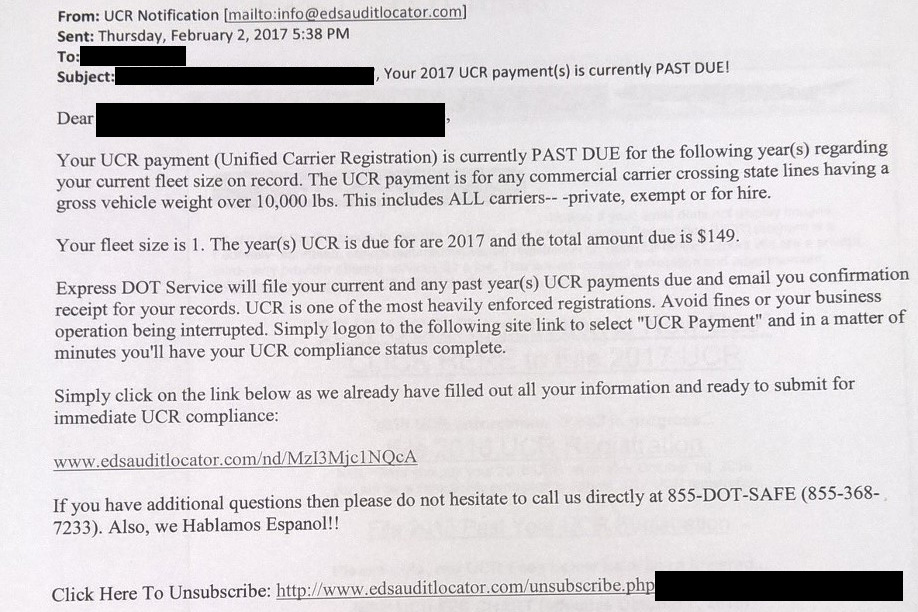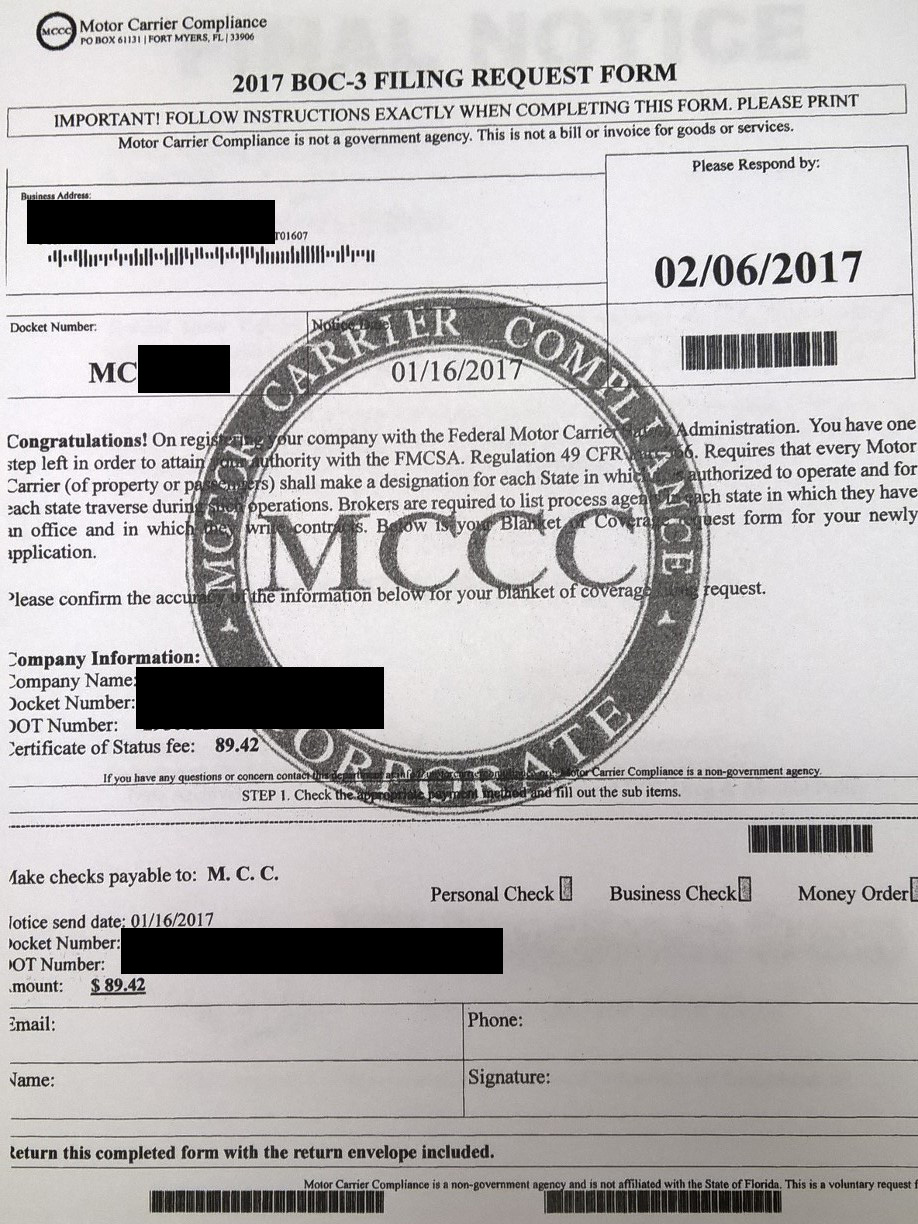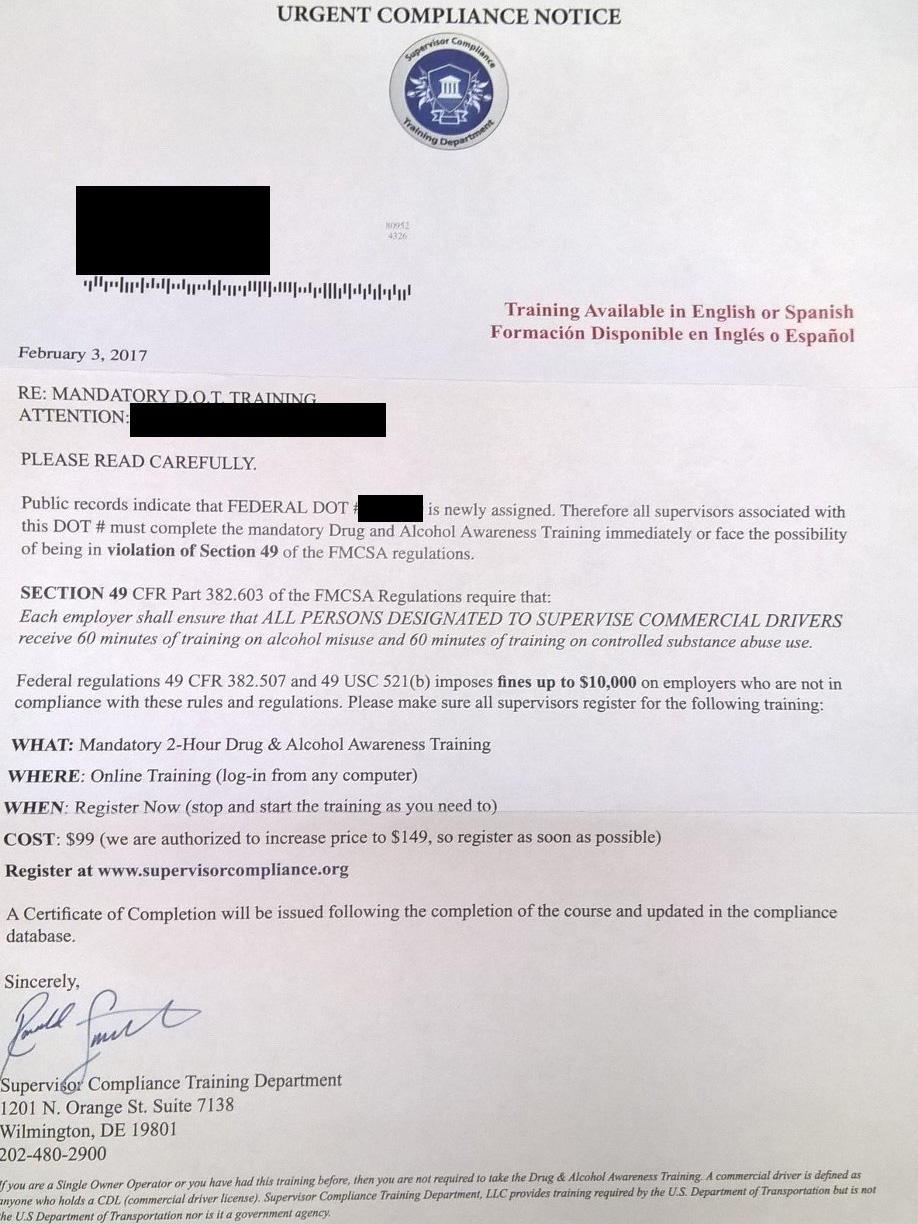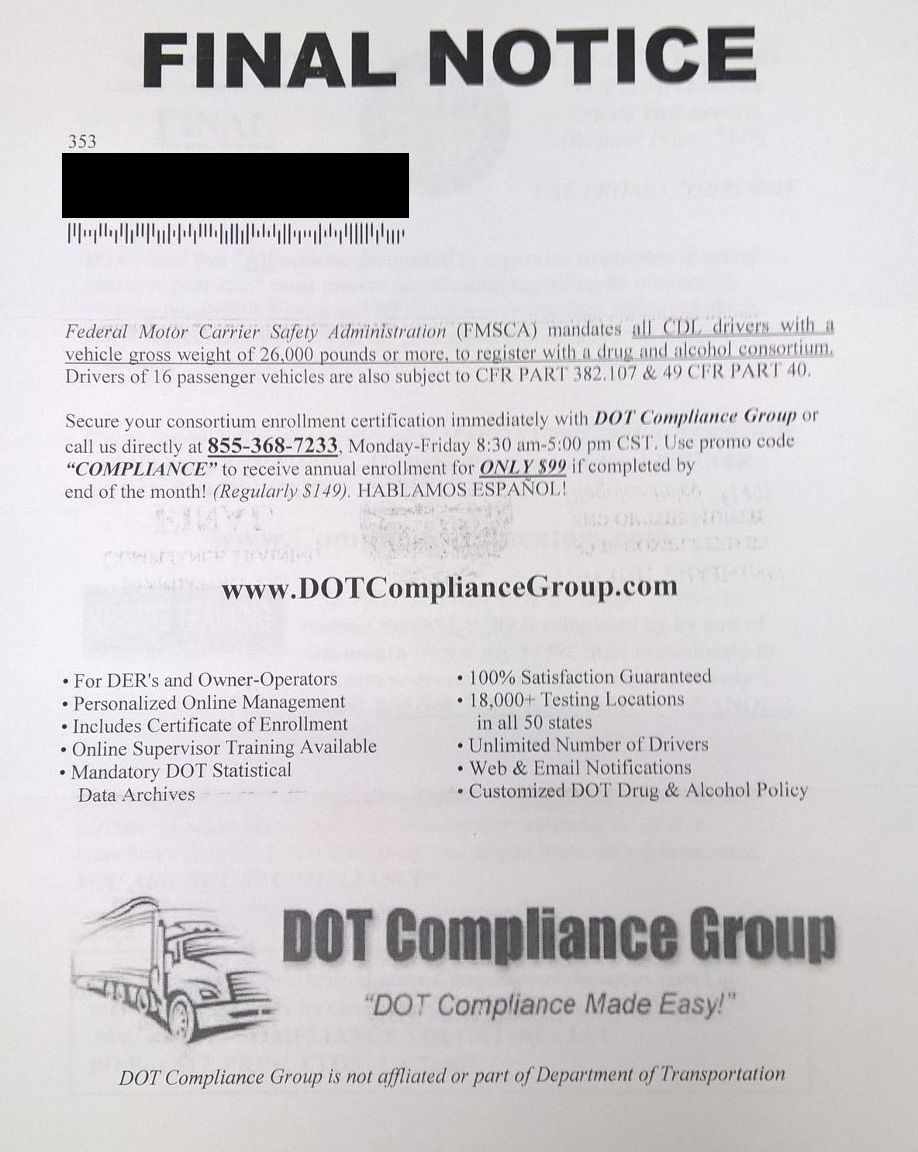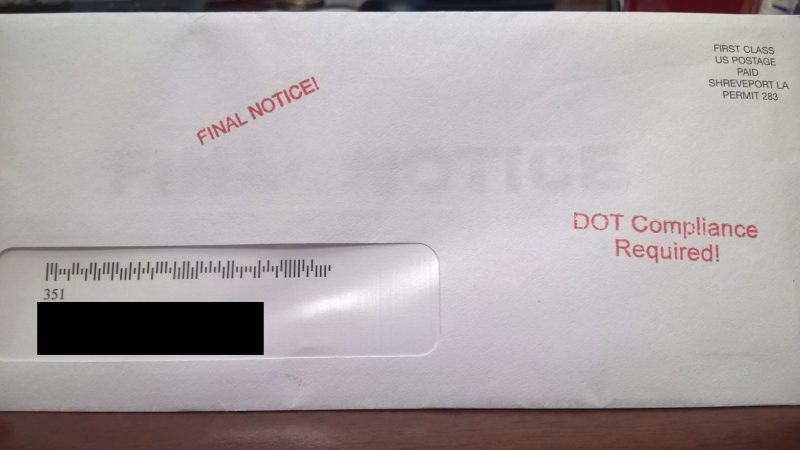
Don’t Be Fooled….. FMCSA Fraud and Solicitations Running Rampant
posted in Alerts by Brian Gray
Don’t Be Fooled….. FMCSA Fraud and Solicitations Running Rampant
Every week they are in your mailbox. Almost on a daily basis they are in your email or on your phone.
What are they? Solicitations trying to trick you into buying a service by disguising themselves as being official government notices or phone calls.
Some phone callers have even posed as a representative of the Federal Motor Carrier Safety Administration and using a tactic of intimidation to convince you to buying your way out of trouble.
In addition to looking real, the solicitations are nearly always about a legitimate DOT regulation making them sound real.
According to Dave Gray, President of Glostone Trucking Solutions, “We have seen official looking solicitations regarding UCR fees, updating the MCS 150 form and even taking required Reasonable Suspicion Training. They prey on lack of knowledge and fear. The price they ask is almost always extremely high and the fine print has them signing up for automatic renewal at these high fees.”
The problem is even worse for new carriers applying for new Authority to operate as a for-hire carrier. Within minutes of hitting the US DOT Authority Application submit button, the phone starts ringing with solicitations.
The problem has become so bad, investigations are underway by the FMCSA to identify these solicitors and order them to cease and desist if not prosecute.
In October of 2016, the Federal Trade Commission filed a complaint against James Lamb and several of his motor carrier business services companies claiming they scammed thousands of carriers out of nearly $20 million dollars using deceptive practices.
How do you spot a scam? The Federal Trade Commission offers this advice:
10 Things You Can Do to Avoid Fraud
Crooks use clever schemes to defraud millions of people every year. They often combine new technology with old tricks to get people to send money or give out personal information. Here are some practical tips to help you stay a step ahead.
- Spot imposters. Scammers often pretend to be someone you trust, like a government official, a family member, a charity, or a company you do business with. Don’t send money or give out personal information in response to an unexpected request — whether it comes as a text, a phone call, or an email.
- Do online searches. Type a company or product name into your favorite search engine with words like “review,” “complaint” or “scam.” Or search for a phrase that describes your situation, like “IRS call.” You can even search for phone numbers to see if other people have reported them as scams.
- Don’t believe your caller ID. Technology makes it easy for scammers to fake caller ID information, so the name and number you see aren’t always real. If someone calls asking for money or personal information, hang up. If you think the caller might be telling the truth, call back to a number you know is genuine.
- Don’t pay upfront for a promise. Someone might ask you to pay in advance for things like debt relief, credit and loan offers, mortgage assistance, or a job. They might even say you’ve won a prize, but first you have to pay taxes or fees. If you do, they will probably take the money and disappear.
- Consider how you pay. Credit cards have significant fraud protection built in, but some payment methods don’t. Wiring money through services like Western Union or MoneyGram is risky because it’s nearly impossible to get your money back. That’s also true for reloadable cards like MoneyPak, Reloadit or Vanilla. Government offices and honest companies won’t require you to use these payment methods.
- Talk to someone. Before you give up your money or personal information, talk to someone you trust. Con artists want you to make decisions in a hurry. They might even threaten you. Slow down, check out the story, do an online search, consult an expert — or just tell a friend.
- Hang up on robocalls. If you answer the phone and hear a recorded sales pitch, hang up and report it to the FTC. These calls are illegal, and often the products are bogus. Don’t press 1 to speak to a person or to be taken off the list. That could lead to more calls.
- Be skeptical about free trial offers. Some companies use free trials to sign you up for products and bill you every month until you cancel. Before you agree to a free trial, research the company and read the cancellation policy. And always review your monthly statements for charges you don’t recognize.
- Don’t deposit a check and wire money back. By law, banks must make funds from deposited checks available within days, but uncovering a fake check can take weeks. If a check you deposit turns out to be a fake, you’re responsible for repaying the bank.
- Sign up for free scam alerts from the FTC at ftc.gov/scams. Get the latest tips and advice about scams sent right to your inbox.
If you spot a scam, report it at ftc.gov/complaint. Your reports help the FTC and other law enforcement investigate scams and bring crooks to justice.
compliance scams compliance solicitations fmcsa fraud fmcsa scams fmcsa solicitation solicitations trucking fraud trucking scams






